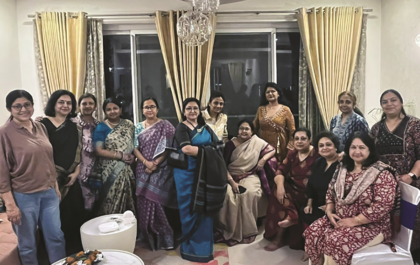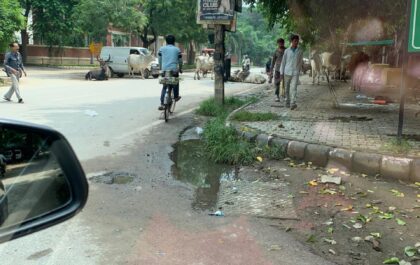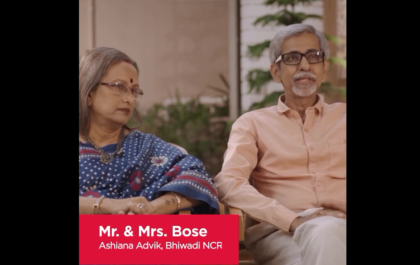The dilemma for N block residents of Panchshila Park
In our multiple colony WhatsApp groups, the residents, especially the new ones, keep asking whether they ought to be paying colony maintenance charges to the N block RWA, against the bills raised on them. Their conundrum is justified because the demand for maintenance charges has historically been raised, both by the Panchshila Cooperative (House Building) Society as well as by the N block RWA. And people are unclear as to the body responsible for managing the N block affairs.
A bit of history is important to understand this, before answering the question.
Historically, our Society, known as the Panchshila Cooperative House Building Society, had a charter to ensure management of assets whilst the plots were being handed over to the residents and the civic authorities had yet to take full charge of areas under their responsibility.
In 2003, a new Act called The Delhi Cooperative Societies Act 2003, was introduced in place of the old one. As per this act, the House building societies were expected to wind themselves up within one year and hand over operational charge to a relevant body responsible for it. In December 2004, the N block RWA was registered with the proactive hope that it will take charge at least of N block, whilst the Cooperative Society wound up as per the promulgation. The Panchshila Cooperative Society was, however, allowed to continue because it still had assets under management.
In 2007, a set of Rules was put into effect under the said Act, called Delhi Cooperative Societies Rules 2007. One of these rules is Rule No 106, Sub Rule No 10 which reads as follows, “Any other organization such as Resident Welfare Association or Apartment Owners Association, by whatever name it may be called, shall not be allowed to control or participate in the management of Co-operative housing complex. However, the committee of the co-operative housing society may set up sub-committees consisting of member and non-member (sic) to assist the committee in the management of the complex of the cooperative housing society.”
This is the crux of the matter. One interpretation is that this rule clearly puts the Society in charge and renders the operation of N Block RWA illegal. The alternative interpretation to this is that the RWA was formed because the House Building Society was to have wound up and the bye laws amended, to make this RWA the legal operational owner. But the Society did not follow this guidance. Technically, only the courts can give a clear ruling in this aspect, but no one is willing to go there.
The N block RWA believes that their Block has historically been neglected by the past Society Managing Committees, allegedly due to under-representation of the block at the MC level, and they are willing to spend money from the pocket of a few residents, if necessary, to manage upkeep of their block. The RWA has accordingly been investing in maintaining the N block parks, including liaising with the MCD and DDA for these. They have one manager and 4 gardeners who are paid for carrying out the pruning, cleaning and liaison etc. activities (no doubt with some duplication of effort with the Society team). They have also updated signages for directions in the entire block, for example, and are pursuing a couple of important legal cases that specifically concern N block. The core team of appx a dozen members, including the President Mr. Uppi Marwah, the Treasurer Mr. Braham Arneja and the Secretary, Mr. Subodh Gupta are, of course. keen to collect funds from N block residents but are also clear that they may not have a legal mandate, and they would do so essentially under a goodwill, by those who do not want their Block neglected.
Dialogues between the RWA and Society’s Managing Committee are ongoing as we speak, where the intent is to work more closely to avoid duplication of work and resources and manage the funds more judiciously. However, this has yet to see the light of day.
In a nutshell therefore, the first legal binding on all residents of N block is to pay the maintenance charges to the Society rather than the RWA, as and when there is an ask by the Managing Committee. However, if some affluent and well-meaning N block residents are willing to make additional payments to the RWA and/or sponsor upkeep, they should do so and feel assured that the RWA is putting them to good use for the well-being of the colony.
Popular Stories
Football Tournament @Princeton
More Than a Festival: The Art and Power of Durga Puja
Personality of the Month- ‘Dr Usha Mediratta’
Stray Cattle Menace In Front of Galleria
The Chronicles of Malibu Towne: A Mosquito’s Tale
“Senior Living Is Not An Old Age Home” say Mr & Mrs Bose
Recent Stories from Nearby
- Construction Activities and the GRAP November 14, 2024
- Navratri Celebration and Dandiya Night at Shubhkamna Society November 14, 2024
- Joyous Celebrations in Silver Estate November 14, 2024
- Diwali Milan at Overseas November 14, 2024
- Design Element of the Puja Pandal November 14, 2024






